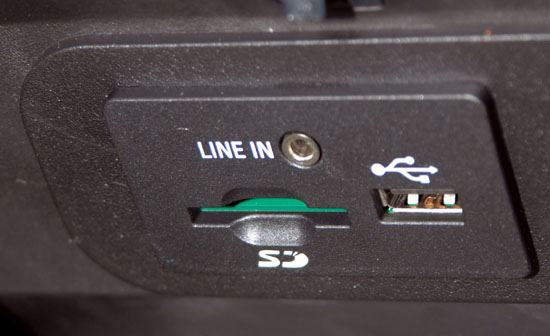8 Reasons for Buying a New versus a Used Car
For nearly 20 years we have been educating car buyers on all aspects of buying new and used cars. The question often arises as buyers suffer with internal turmoil and angst asking us, "Should I buy a new or used car?" You'll get many different opinions from different people. So whose answer is right?
It may very well be possible that they are all correct. This is not a one size fits all topic. You cannot simply show up at the foot of the mount and expect the car gurus to generalize a one size fits all answer. The most accurate answer is it depends on your financial situation.

For some people, buying a new car is a good thing and for others it's a very bad financial move, devoid of any common sense. We see it all the time. I often find myself hanging my head low, shaking side to side as I read the emails from uneducated buyers who made numerous mistakes while car shopping.
First of all, let me give you some sound financial advice that you've probably heard a million times before. Buying a new car is actually a terrible investment because they depreciate so rapidly. In fact, they will drop about $3,000 in value as soon as you drive off the car dealers lot. So I'll sit here jokingly saying, "No, Don't, please stop." But, come on ,you know we all want a new car and those who can buy a new vehicle will do it anyway.
Why does your brand spanking new car drop in value so fast after you just bought it? The reason is that, in the eyes of a car buyer that you want to sell your car to, your vehicle is a used car now. I hear from anal car buyers all the time complaining that they just bought a new car and there's 25 miles on the odometer and they want to sue the dealer for misrepresenting and selling it as new. Unless a car has zero miles on it, which is impossible, some finicky buyers value it much lower.
Also if you total your car in a crash the insurance company can easily find a "similar car" out in the market for $3,000 less than you just paid for it 20 minutes ago and that's all they're going to offer you for your car. Most new cars depreciate about 25 percent the first year, another 15 percent the second year and by the third year you are down to about 50%. You can confirm this by looking at the residual values on some auto leases.
But come on people, once you get past this important advice from your accountants, friends and financial advisors, yeah we all know a car is not a money making investment. I'm not buying it like shares of Apple, hoping to double my money on it by next year. Hey I got news for you, a case of beer isn't a good investment either but we buy it anyway, because we don't want it for its suitability for our future investment.
You'll see lots of articles out there talking about reasons you should never buy a new car. Aside from the sound financial advice and common sense stumbling block reasons not to buy a new car, there are pros and cons to every situation. Here we offer up some reasons to consider moving forward and buying a new car vs used car.
1. You get the latest greatest technology, features and safety equipment
Maybe your current car is over 5 years old, so you have not kept up with the latest gadgets on new cars and trucks. Over 5 years ago there weren't too many vehicles with iPod connections or even iPhone ports. Once the first iPhone launched in 2007, it ushered in the smart phone genre and changed our lives and our cars forever.
Many cars now include technology package options with newer types of multiple USB ports to charge several phones at once in the vehicle. Cigarette lighter power connector? What's that non-sense? USB is where it is at folks. Most modern vehicles have the ability to connect your MP3 player to your radio. Used cars may not have this technology, but now we expect it as standard equipment in new cars.

Another benefit you have when purchasing a new vehicle is that each year as they increase safety requirements, so we can presume that cars will get safer year over year. Environmentalists love strict fuel economy laws requiring more fuel efficient cars. You will benefit from these laws, with a more fuel efficient new car. But with used cars, the dirty industry secret they don't tell you is the gas mileage gets worse with age.
It's a great time for technology and new cars. We are hearing about new high-tech features such as built in Wi-Fi hot spots, self-parking cars or parallel parking assist, 360° cameras, LED headlights and tail lights and remote sensors that turn on lights as you approach the car.
New cars are being made stronger, lighter and more fuel efficient than ever. A great example of that is the new aluminum 2015 Ford F-150 pickup that shaved 700 pounds off the truck, improving gas mileage. Ford cannot sell enough of these trucks, the sales shot through the roof. See our review of the F-150 with photos here.
2. No worries about wrecked cars, rolled back odometers or flooded vehicles
One fact you can pretty much bet the bank on is that it's a very low chance of a new car having a rolled back odometer and will only have about 20 miles on the odometer. Plus, with only 20 miles or so, it hardly has had a chance to be wrecked or flooded yet so you can put any of those fears to rest.
You don't have to worry about any prior airbag deployment. A lot of times when a used car was wrecked and the airbags were deployed. How do you know whether it was replaced or not? Was the airbag replaced properly? You have no custody trail to point out what work was performed or not performed.
This is why we run vehicle history reports on all used cars. If the report indicates previous airbag deployment, I sure wouldn't get much sleep wondering whether or not my airbags were intact. With a new car, you can rest assured they are poised to protect you.
3. CarBuyingTips.com teaches you how to save thousands off sticker price
We've been advising car buyers since 1998. Teaching you how to save the most money possible whether you are leasing or buying a new or used vehicle. Our visitors like you, become well educated and informed super savvy shoppers. Our average visitor, using our advice, reports saving of between two and four thousand dollars on a new car and between four and eight thousand dollars on a new truck or SUV.
If you can shave enough off the window sticker price, it helps making a better case for buying a new car. Just make sure you adhere to our advice and follow all the steps. If you ignore our advice, you'll pay too much and leave more money on the table.
We guide you through every step of the buying process revealing all the known dealer scams. Just remember this: the lower the price you can buy your new car for, the less depreciation you will incur compared to another buyer paying full sticker price.
This will help dilute the argument from all the pundits warning you just how much your car depreciates. Getting a discounted price helps minimize the effects of depreciation.
4. New cars have three and four year warranties; used cars have no warranty
Most new cars today come with a 3 or 4 year manufacturer's warranty to cover most failures of your car. Some car makers even have 100,000 mile powertrain warranties. You don't get that with a used car. You are pretty much guaranteed to not have to shell out money for any major repairs for 3 or 4 years. Vehicles are much more reliable today than they used to be, so you're probably going to enjoy additional worry free years even after the warranty expires.
It could be 6 or 7 years before you have to worry about any major components failing. For example on our Lexus SUV the first major component that failed was in the fifth year of ownership when we had to replace a few parts for the air conditioner. The starter went bad later in year 5 and that wasn't terribly expensive. We didn't have anything huge pop up until around the seventh year of ownership.
But the problem with buying used cars on the other hand is that most are sold "As-Is, No Warranty." You can easily tell by looking at the federally required white Buyer's Guide sticker on the window, required to be on every used car sold by a dealer. It specifically states you are buying that used vehicle with no warranty, unless indicated otherwise.
Many lying salespeople with their Jedi mind tricks unfortunately lie to you and tell you that your car has a warranty when there isn't one, or "just bring it back if you have a problem and we will fix it." But 2 weeks later as hundreds of our visitors have reported, first sign of a $1,500 transmission failure and you bring that car in for service, they suddenly turn into lawyers and tell you that you bought the car "As-Is" and you have no recourse.
In the complex legal entanglement world of extended warranties, the only thing that matters is what's written on the window sticker or closing papers, not what you are told verbally. Even with certified pre-owned cars, many of them don't come with a warranty so don't let that marketing terminology trick you, it is just bogus words and hot air.
Some car dealers try to ease your mind as they sell you a used car for $3,000 more than you would pay from a private party by throwing you a few bones in the form of an extended warranty. Some of these warranties that you're given by certified pre-owned dealerships are nothing more than overpriced diluted bare bones packages that have so many loopholes in them you could drive a pickup truck through it.
Compare that to buying a new car, pretty much everything on it is guaranteed by the manufacturer for three or four years.
5. The right combination of rebates and incentives gives you a stronger argument for buying a new car
Other experts might be trying to talk you out of buying a new car, but they are not even looking at the rebates and incentives when they dispense their sound advice. Sometimes you can get a combination of incentives so unbelievable that you're saving thousands of dollars.
Let me reiterate here, if you can score some huge rebates, it's like depreciating the value of the car before you buy, so you don't take the hit. This is what the other experts all miss, but we at CarBuyingTips.com have you covered.
Some of the car makers in the last couple of years have been giving really crazy rebates that can sometimes stack up for incredible savings. For example, they often have military discounts of $500 on top of whatever rebates are in place, including factory to dealer incentives and marketing dollars to help them unload cars on the lot. Did the people trying to talk you out of a new car see that? Nope!
Some car makers have recent college grad incentives. I often see USAA incentives, police officer incentives, competitive conquest incentives, and discounts on certain options packages. The list goes on and on. So if you were in a fortunate position to stack a few of these rebates and incentives together, you're going to walk away saving some huge amounts of money. You can't do that on a used vehicle.
These other experts weren't aware of all this when they dispensed their advice to you against buying a new car. One really great time to buy a new car is the month of December. Read our blog post on that topic Tis the Season for Steep Year End New Car Discounts.
During that December time frame, you can see huge rebates, massive factory to dealer marketing cash, then if you qualify for these other incentives, you can really score big.
6. Online tools empower you to get better car pricing than ever before
In the past we did not have sites like TrueCar and Edmunds to help us out. TrueCar has very powerful online new car pricing tools and provides us with some incredible market intelligence and recent selling prices in your area, with pricing curves and data that simply was not available in this form a few years ago. Their new car pricing data along with their car buying service, allows you to really zoom in on how much you should be paying for that car.
Many newer modernized car dealer sites show their inventory online. You can shop their lot, find a car with options you want and then use this information along with dealer invoice pricing data from these online tools to plug all your numbers into our Buyer's Offer Spreadsheet without ever leaving your house. This makes shopping around more efficient. People who hate to haggle can just buy their new vehicle through these online services and the internet sales manager.
Sure there are plenty of good used car sites and tools out there also but let's face it folks, many of these used car sites list quite a bit of vehicles posted by dealers which are often very expensive and priced above market value at the retail level. Used car dealers often sell their vehicles for thousands of dollars more than market value or what you would pay from a private person.
I have always felt that many car dealers have come up with this concept of certified pre-owned vehicles as a mechanism for charging you way more money for the car so for this reason I've always felt that buying used cars through dealers tends to cost way more than it should. A savvy buyer after reading our site can go buy a decent used car, negotiate the best deal and buy their own extended warranty that is better than what the dealer has to offer.
7. You get peace of mind knowing there was no previous owner
Some people can be quite anal and just don't want something that somebody else owned before them, even if it has very few miles on it. The car might not have been wrecked or damaged, but there still maybe problems! You may not be able to tell from the outside that there was something wrong. How do you know that the previous owner performed all of the required maintenance as specified in the owner's manual? Everyone lies and no one gets their oil changed every 6 months.
I am one of the few people of everybody I've ever met who actually keeps all the maintenance records in a notebook. Every time I bring my car in for an oil change the invoice goes into the notebook. Whenever I buy tires the invoice goes into the notebook as well. I am so careful that whoever buys my car from me can rest assured knowing that all of the required maintenance was completed.
But not all sellers are meticulous like me, so by purchasing a new car you will never have to worry about who owned it before you. How well they drove it, how they beat it up, or how they maintained it. This is simply removed from the equation.
8. Satisfaction of just knowing you have a brand new car
This is what drives most of us to buy new cars. There is something to be said about showing up at your friends' houses and showing them your new car and hearing them say "that's the car in the commercial!" You finally get your congratulations and suddenly you are the star of the show.
You are the first kid on the block with the latest greatest toy. Excitement that only money can buy and you just spent a lot of it! Hopefully you used all our advice to buy it. There is such a great feeling that first few months driving around in a new car, all nice and clean, new gadgets and that new car smell.
Of course I agree with most of the other experts that many people should not be buying a new car.
My rule of thumb I have shared with people for decades, is that if you don't have 20% to put down on the car, you should not be buying any car! Certainly not a new car, if you can't afford to pay off the loan in 48 months.
These 72 month and 84 month car loans we are seeing are outrageous. Do you really want to be paying off a car for 6 or 7 years? You should not be buying a new car unless you are someone with financial stability and discretionary funds to either make the payments easily or pay cash.
But if you cannot fit into any of the above criteria, you should not buy a new car it simply doesn't make financial sense.
So bottom line, your litmus test of whether you should buy a new car versus used, should be to verify you can put down 20% to beat depreciation and avoid being upside down on the car loan and that you can afford a 48 month auto loan.

About The Author: Jeff Ostroff
A lifelong consumer advocate with over 20 years of unparalleled expertise, Jeff is the Founder, CEO and Editor-In-Chief of CarBuyingTips.com. As chief consumer advocate, he oversees a team of experts who cover all aspects of buying and selling new and used cars including leasing and financing.
For decades, Jeff has been the recognized authority on vehicle purchasing, sought out often by the media for his decades of experience and commentary, for live call-in business radio talk shows and is cited often by the press for his expertise in savvy car shopping methods and preventing consumer scams and online fraud. Jeff has been quoted in: CNN, MSNBC, Forbes, New York Times, Consumer Reports, Wall Street Journal and many more.
Jeff also has extensive experience and expertise in new car brokering and selling used cars for clients on eBay and Craigslist. Connect with Jeff via Email or on Twitter.







